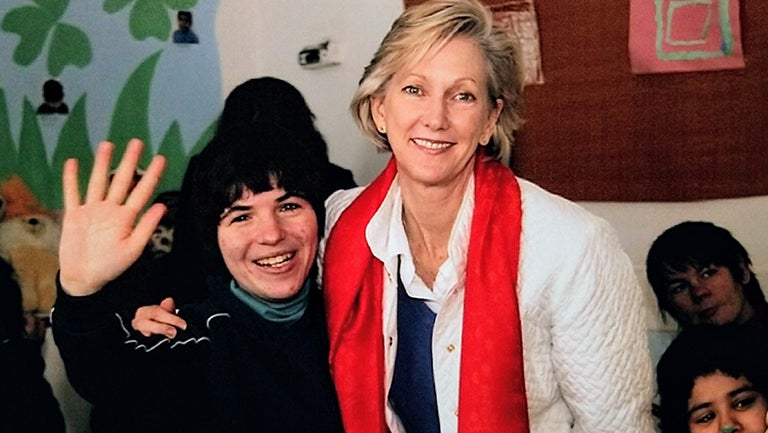Title: International Affairs Training Expert Now Director of Georgetown’s Master’s in Foreign Service Program
The new director of the Masters in Foreign Service (MSFS) program – Nancy McEldowney – is a distinguished leader in foreign affairs training, senior policy advisor and high profile diplomat.

Nancy McEldowney – a distinguished leader in foreign affairs training, senior policy advisor and high profile diplomat – has joined Georgetown’s School of Foreign Serviceas its Masters in Foreign Service (MSFS) program director.
Most recently, she served as the director of the Foreign Service Institute (FSI), the premier foreign affairs training provider for the U.S. Government.
From February 2013 to June 2017, McEldowney managed the institution’s 1,400 strong-staff as they provided training critical to the functioning of the U.S. government’s foreign policy to 170,000 enrollees.
Deep Knowledge
At MSFS, she intends to expand on her experience training future leaders on international issues.
“The MSFS program is renowned for producing graduates withdeepknowledge, practical experience and a commitment to principled action in career fields that rangeacrossthe private sector, nonprofitsand government service,” McEldowney says. “I want to strengthen and build upon that impressive legacy as we look to a future of dramatic global change.”
Prior to her position at FSI, McEldowney servedat the National Defense University (NDU) as president and senior vice president, directing efforts to expand international outreach and cooperation in NDU’s master’s degree programs.
The career Foreign Service officer also has served as director of the National Security Council’s director of European affairs under President Bill Clinton, and as U.S. ambassador to Bulgaria for President George W. Bush.
“We are so thrilled to have someone leading MSFS with such an incredible range of experience in global affairs and diplomacy,” says SFS Dean Joel Hellman. “We are confident that she will help to ensure that SFS remains the leader in international affairs education in the world.”
Issues of ‘Huge Consequence’
McEldowney’s interest in education and foreign relations began during her own graduate education at Columbia University and the National War College.
A student of international politics and the Soviet Union, she intended to pursue an academic career, but was swayed to public service by a summer spent interning in the State Department Office of Soviet Affairs.
“I met people of brilliance and conscience grappling with issues of huge consequence,” McEldowney says. “These people were taking decisions that shaped the world and I knew in an instant that I wanted to join them. So I changed my career path from academia to public service, but I never changed my focus on and my commitment to scholarship and education.”
Compassion and Determination
In all her positions, she says she’s been motivated by an enduring set of goals and beliefs.
“These include a desire to understand and positively shape the international system,” she explains, “[and] a conviction that responsibility to alleviate human suffering rests on the shoulders of those with capacity and compassion and a determination to find equitable and inclusive solutions for the largest possible number of people and countries.”
McEldowney looks forward to getting to know the people who make up the MSFS program.
“The very first thing I want to do is simply to listen,” she says. “The depth of expertise and breadth of experience possessed by the faculty and staff are invaluable resources. I have much to learn from them and am eager to hear their views of the program and its future.”
She also expressed interestin the possibility of expanding diversity, both in the student body and course content, and hopes to explore how to better support MSFS students both academically and financially.”
Preparing Students
McEldowney emphasized a few critical traits she hopes to instill in MSFS students as they prepare to navigate an uncertain future.
She also looks forward to setting goals that keep MSFS abreast of a changing world.
“As we look ahead, we’ll want to strengthen our foundation and enduring traditions while also ensuring that we are addressing emerging issues across a number of different fields,” she says. “We want to ensure that our students graduate with the knowledge and skill sets they will need to navigate successfully through a world of continuing dramatic change.”